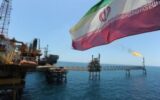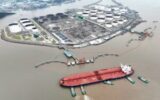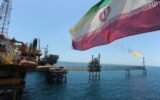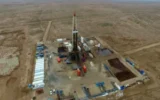
The publication of a strange news item by the international media outlet "TankerTrackers" stating that Iranian tankers' trackers have been turned on after seven and a half years has inflamed the oil scene. A claim that some experts consider a sign of "shadow government" interference and an attempt to create a crisis and new pressure on the new government. But what is the story?

In its latest monthly report, the US Energy Intelligence Bureau announced that Iran's crude oil production in September had increased by 6,000 barrels in September.

Despite the annual increase in China's crude oil imports in September, the country's imports declined compared to August, reaching the lowest level from the beginning of the year. At the same time, imports from Iran have also fallen to the lowest level since January.

A member of the Islamic Consultative Assembly's Program, Budget, and Accounting Commission stated: "All state-owned companies and mines should be transferred to the private sector because most of these complexes are loss-making, but oil, like natural resources, is a national issue and is among the assets that should not be transferred to the private sector."

The CEO of the National Southern Oilfields Company announced: "Aghajari Company has reached its maximum oil production capacity despite the limitations."

A few days ago, the Minister of Oil announced that two new layers of oil and gas were discovered during the drilling of the second well of the Pazan field, located on the border of the three provinces of Bushehr, Fars, and Kohgiluyeh-Bovir Ahmad. This news contains 5 basic points.

Iran exports millions of tons of methanol to China annually at a meager profit, while the country has created hundreds of times more value added by converting the same methanol into propylene, the “petrochemical caviar,” and has achieved 96 percent self-sufficiency in propylene production. An opportunity that Iran could have used to complete its petrochemical value chain by investing in domestic MTP units and move from selling crude to creating sustainable wealth.

In a statement, the National Iranian Oil Company said in a statement that the British Court of Appeal was confirmed to be confirmed by the London Oil Industry Pension Fund, the legal follow -up of legal and international paths to cancel the ruling was continuing.

Over the past years, and especially since June last year, we have been adopted by the law of Shipuct, but with the necessary measures we were able to virtually bypass the boycott and make oil sales favorable.

These cases continue to be; The second and third dimensions are still in the court and are being pursued. Our International Legal Department and our International Legal Center are being pursued in cooperation with ministries and related institutions.










